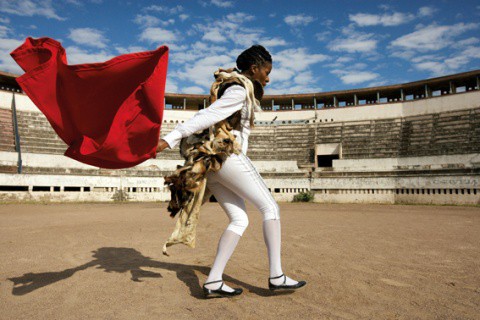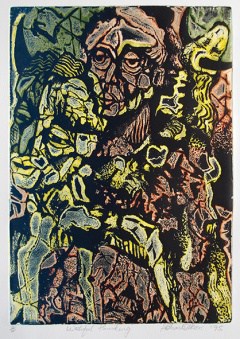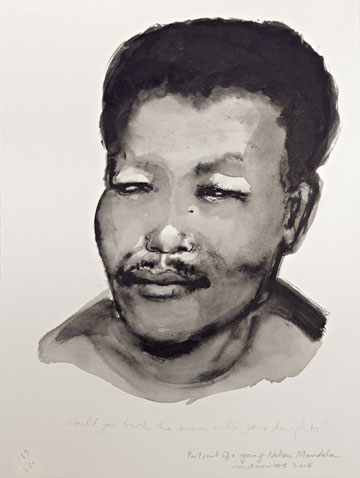The University of Cape Town announces the winners of the Donald Gordon Creative Arts Fellowships, to be taken under the auspices of the Gordon Institute for Performing and Creative Arts (GIPCA).
The Fellows for 2012 are the highly acclaimed and provocative choreographer Mamela Nyamza; African-American photographic artist, Jared Thorne; contemporary physical performance artist and director Richard Antrobus; extensively published author Henrietta Rose-Innes, and widely respected visual artist Michael MacGarry. This is the fourth year that the Fellowships, made possible by a generous donation from Sir Donald Gordon, will be offered. GIPCA is an innovative institution at UCT promoting new interdisciplinary creative research in the disciplines of Music, Dance, Fine Art, Drama, Creative Writing, Film and New Media, and in particular collaborations among disciplines. The award helps to provide the crucial time, intellectual and creative support required by practicing artists, and is meant to nurture a new generation of artist/performers and arts scholars. Applications are accepted from individuals who graduated with Masters degrees or an equivalent in any disc ipline in the performing and creative arts. Fellows work full-time in a relevant UCT department as well as with the Institute’s various projects. Most especially, they are involved in the creative research life of university staff and students, with each year-long Fellowship culminating in a creative project of the Fellow’s design. Standard Bank Young Artist Award for Dance for 2011, Mamela Nyamza’s work considers the engendered body, and the contemporary definition of dance, through her experimentation around themes of men and (mostly) women’s roles and issues. She asks how a body can use its instrument outside of conventional expectations, using dance to gain access to the deepest parts of the body, emotions, lightness and fears, and to elicit higher demands of ourselves. Practically, her interest lies in deep exploration of experimental forms of natural movement; and the simplicity of choreographing without using dance steps that are typical and conventional, often through the juxtaposition of movement of untrained and trained dancers. Her project will scrutinise our contemporary understanding and experience of time, and human movement in it. Richard Antrobus’ work also questions notions of ‘contemporary performance’, considering where the boundaries of theatre and other performance art genres are blurred, with the stylistic cross-disciplinary use of theatre, dance, mime, multi-media, circus/street-performance and design coming together in a single ‘physical theatre’ production. Antrobus seeks to continue this exploration of the cross-disciplinary nature of contemporary performance, culminating in his final project entitled Delayed Live. Through the use of multi-media, live camera feed, pre-recorded footage and simultaneous live performance from actors and dancers in a live (as well as delayed-live) performance space; shifting social, intellectual and artistic dynamics are considered in an introspective look at the private in-between moments in the lives of dancers/actors, simultaneously projected as public, delayed-live performance by the dancers/actors who are a(live) and present on stage themselves. Having grown up in Boston, Massachusetts and attended Columbia University, Jared Thorne plunges into a transcontinental search for Black middle class culture, with an exploration of how it is articulated in Cape Town. Through photography and audio interviews, he intends to facilitate extensive visual and verbal dialogue on how identity is created in the global south, specifically in Cape Town, culminating in an exhibition of large format color photographs centered around panel discussions that deconstruct the ideas around whether or not “Race Matters?” Visual artist Michael MacGarry’s film, exhibition and book project offering, As Above, So Below, is principally focused on a philosophical re-imagining of the visit by the British naturalist Charles Darwin — author of On the Origins of the Species — to the Cape between 31 May and 18 June 1836, and his engagement with another great revolutionary thinker of the nineteenth century, Karl Marx. The works of Darwin and Marx, one in the realm of the natural world and the other in human society, have become the apex of the intellectual labour attendant o



